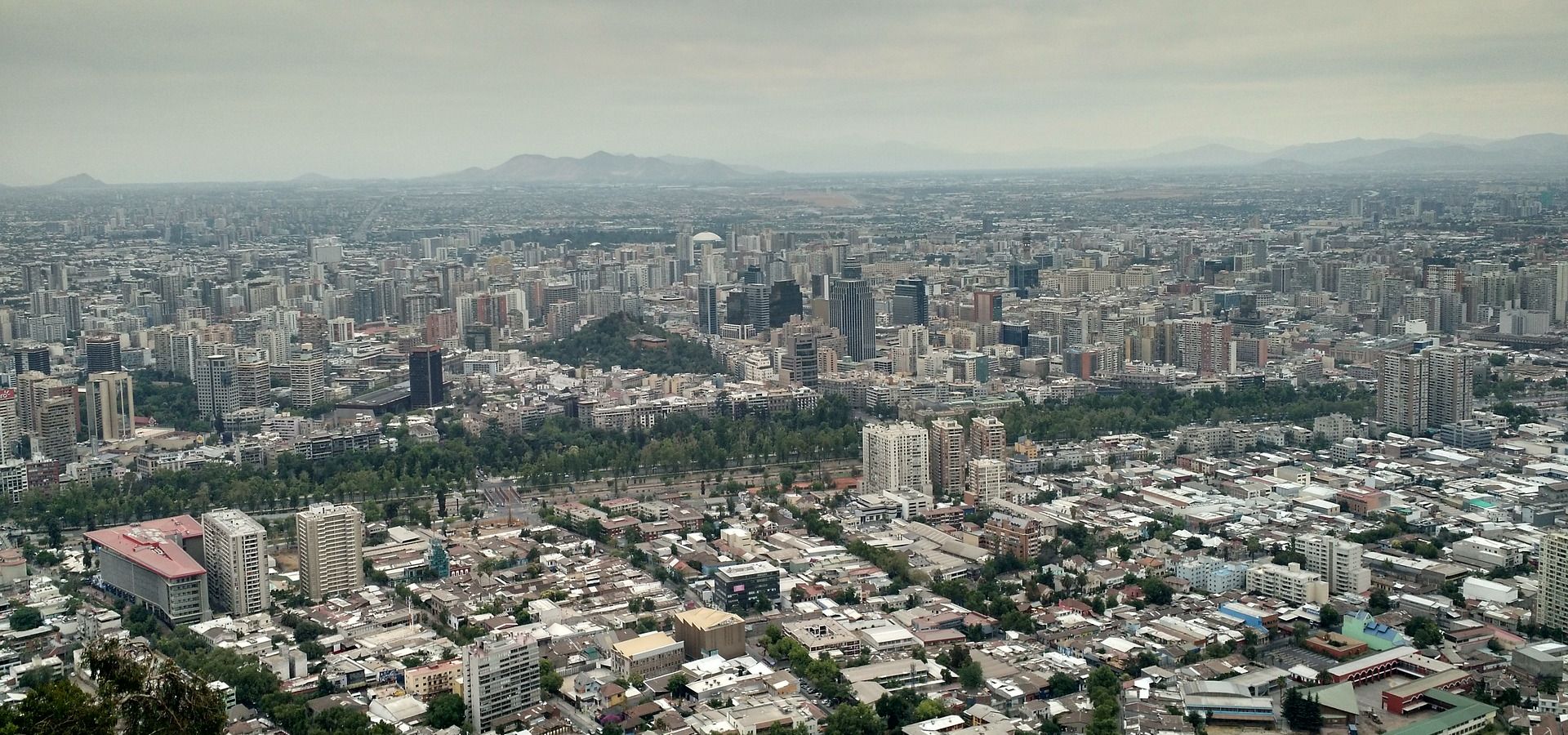In the run up to the Madrid-based COP25 international climate talks set to begin in early December, former Director of the Heinrich Böll Foundation’s Energy and Environment program, Rebecca Bertram, conducted a series of interviews with Latin American officials and activists. In Part 3 of the series, Bertram meets with Samuel Leiva, environmental policy consultant with the Terram and Heinrich Böll Foundation’s office in Chile.

Santiago de Chile was supposed to host the COP25 before the decision was made to move the conference to Madrid (Public Domain)
Background: The South American country, home to more than 18 million people, was long regarded as Latin America’s most stable and prosperous country. But high social inequality and the ever-rising cost of living have driven an increasing number of citizens on to the streets and led to the cancellation of Chile as the COP25 venue. Moving the COP25 from Santiago de Chile to Madrid has weakened the political urgency for climate action throughout Latin America.
Rebecca Bertram (RB): Can you explain what is going on in Chile right now? Are the demonstrations in any way related to the neglect of environmental and climate policy by successive Chilean governments?
Sam Leiva: The Despertar movement which is behind the recent social uprising does not have its roots in environmental issues per se. However, the unfolding social crisis is also an environmental one. Chile’s economy depends in large parts on the extraction of natural resources, which – until now – we have been doing at very high environmental costs.
RB: What are the main challenges posed by climate change in Chile?
SL: As a major wine and fruit producer and exporter we are dependent on steady fresh water supplies. Climate change also impacts our oceans, which is of growing concern to us. We are not only seeing a rise in water temperatures but in acidification as well. This in turn reduces the amount of fish we can catch and consequently affects our entire fishing industry consisting of almost 20,000 fishermen.
In the central part of Chile water shortage is one of our major climate induced challenges. We are experiencing dramatic decreases of water availability in the reservoirs serving our capital city Santiago. About five years ago, our Ministry for the Environment predicted we could lose up to 30 percent of fresh water reserves over the next thirty years. Today, the forecast would be much more dramatic.
RB: What is Chile doing to fight the effects of climate change?
SL: On the global scale, Chile is not one of the big greenhouse gas emitters. It would, however, be relatively easy for Chile to reduce its greenhouse gas emissions since more than one third is produced by just 26 coal power plants, of which half have already surpassed their lifetime. A few years ago, the government agreed on a timeframe for closing down these plants, but this is not sufficient to satisfy civil society concerns.
RB: In October, Chile announced that it would increase its national determined contributions (NDCs). What do you make of this move?
SL: The current goal for 2030 is to reduce our carbon emissions by 30 percent below 2007 greenhouse gas intensity of GDP. The recent government announcements did only change the parameter for measuring our climate efforts. Now CO2 is supposed to be measured by ton rather than percentage greenhouse gas intensity of GDP. The new aim is to peak national emissions by the year 2027.
The new objectives are going in the right direction. But they are only announcements, not yet law. We should significantly increase our tax on carbon emissions, which currently lies at just 5 US$. I doubt that our government is willing to make these changes. Many of these so-called policies depend in large parts on the support of our big energy and industrial companies.
The big elephant in the room is how our economy can adapt to climate change. And here there is much room for improvement. The culprit is our constitution which promotes the extraction but not the protection of our ecosystem.
RB: If the constitution is the main problem, what should be done to change it?
SL: I believe that making new laws for dealing with the impact of climate change a central part of our constitutional amendments will be key. There is an overall agreement in Chile that we need to make a new social pact fit for the challenges of the 21st century. We need to rewrite the current rules of the game for our governments and policy makers. Congress has now committed itself to change the constitution by 2021. The challenge will be how to organize and decide on the amendments over the course of next year.
RB: Hosting the COP25 in Chile was regarded as an important mobilizer for Latin American civil society groups. How will the decision to move the conference to Madrid affect this?
SL: That is a very good question. We had counted on a strong presence in Santiago of climate civil society groups from all over Latin America and had big hopes that the COP25 could really help put climate change on the political agenda throughout our continent. As a result of the change in location, the number of civil society representatives from Latin America at the COP in Madrid is much reduced and with it the sense of urgency in Latin American civil society discussions. The paradox in all of this is that the Chilean government originally had called its COP the citizen COP.
RB: But you have not given up all hope for COP25?
SL: Not quite. I would like to see Chile being pressured to act on its climate promise, to integrate climate change adaptation in all its economic policies and activities and to shut down its dirtiest power stations as soon as possible. Having followed the international climate negotiations for many years, however, I doubt if Madrid will produce any big surprises.